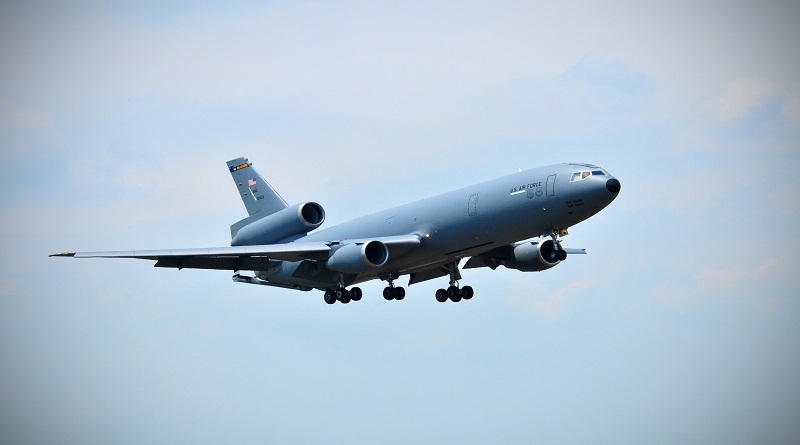There is one thing any of us live for and that is the feeling of stepping off an airplane into the hot sun. Or maybe you love the idea of a city break in a beautiful city. Nevertheless, there is a lot of work that goes into getting us to our destinations.
While flying and travelling can be easy for the passenger who shows up, hop on a plane and sit back and relax, there is a lot of work and many different roles and people that need to carry out their job exceptionally to deliver such services. They are the professionals working in the area of airline studies and aviation.
What are airline studies?
Airline studies is the study of different aspects and skills that are needed to work in the tourism industry and travel in roles such as airline Cabin Crew or Travel Consultancy.
What third level courses are available?
Universities and colleges in Ireland offer courses in the following courses in this area:
PLC:
- Airline and Travel Industry Studies
- Airline Cabin Crew and Tourism Studies
- Tourism with Airline Studies
- Tourism, Travel and Airline and Cabin Crew
- Tourism, Travel and Business with Airline and Cabin Crew Training
- International Airline Studies
- Aviation Finance
Undergraduate:
- Aviation Management with Pilot Studies
Aviation Technology
Aeronautical Engineering
Studying Airline Studies in college
The majority, if not all, of the courses listed above and others available are all PLC (QQI Level 5 Certificate) courses which means they are mostly one year courses and can be used to go forward into an undergraduate degree that may be of interest to you in a related field.
In a course in Airline Studies you will gain all the necessary skills and knowledge in order to gain a foundation in the world of tourism. There are quite a number of courses in Airline Studies with each course potentially having slightly different content depending on its exact title and areas of interest.
In general, you will look at areas such as tourism principles and practice, cabin crew, customer service, reception and frontline office staff, marketing and tourism information and administration among many more topics. In some courses you may also take work experience to apply your theory to your practice.
All courses, either PLC or otherwise, will give you a foundation and understanding of the working world you will enter into and ensure you will have the required knowledge and skills in order to continue to develop your career.
Undergraduate degrees such as the course available in Aviation Management with Pilot Studies will last 4 years with the first two years being a general introduction to business analysis, the aviation sector and the technical aspects of being a pilot. In third year you will undergo work experience and look at specialist modules while your final year you can choose between staying at your university (in this case DCU) and study additional modules or you apply to the Irish Aviation Authority’s training programme.
Career Options
In this industry, often companies such as Aer Lingus or RyanAir offer recruitment opportunities which are an in-depth process of interviews and a medical examination. FAQs can be found on their websites.
There are a number of different routes you can take in the area of airline studies and aviation. You can take the route of becoming a pilot, you can become cabin crew, you can work in areas such as customer service for airlines, in the airport or for tourism companies. If you take a course that combines airline studies with tourism, for example, you could go the tourism route and work with tourism companies such as taking further study to get to a PR and Marketing role.
There are a wide variety of options you can take here and you are not limited to the particular role of cabin crew or airline staff. Many may go into the research or lecturing area after some time working in the field also.
In this area there are a few skills and qualities that are important to have. These include excellent communication skills, strong interpersonal skills, flexible, friendly manner, time management, good organisation skills, the ability to remain calm in an emergency, good colour vision and hearing, good health and a general standard of fitness and assertiveness.
Related Jobs
- Cabin Crew
- Airline Pilot
- Aeronautical engineer
- Aviation manager
- Tourism
- Travel Agent
- Hotel manager
- Airport manager
- Aviation finance
Further Study
Visit postgrad.ie for more information.
FAQ
Different courses and different colleges will have different entry requirements. It’s always safest to check with the individual higher education institution which is available on their websites. As a general rule Leaving Cert students should have a minimum of six subjects which should
include: Two H5 (Higher Level) grades and Four O6 (Ordinary Level) grades or four H7 (Higher Level) grades. Subjects must include Mathematics, Irish or another language, and English.
To get into a PLC course, your Leaving Certificate result will suffice but be sure to check your specific course as the exact requirements may differ. If you wish to continue on to an undergraduate course from a PLC, most courses in this area may accept a QQI Level 5 Certificate.
If you wish to go straight into an undergraduate degree from your Leaving Certificate be sure to check requirements also. The points for Aviation Management in 2020 were 475 points while Aviation Technology requires 350 points.
Where can I study?
For other courses in the area you would like to explore, you can do so here.
Did you know?
- The world’s largest airplane weighs nearly 600 tons.
- Your taste buds can change in-flight
- The fastest commercial plane flew at twice the speed of sound
Resources












Comments